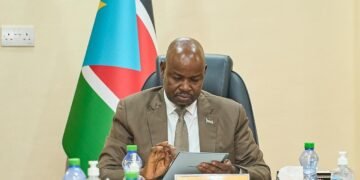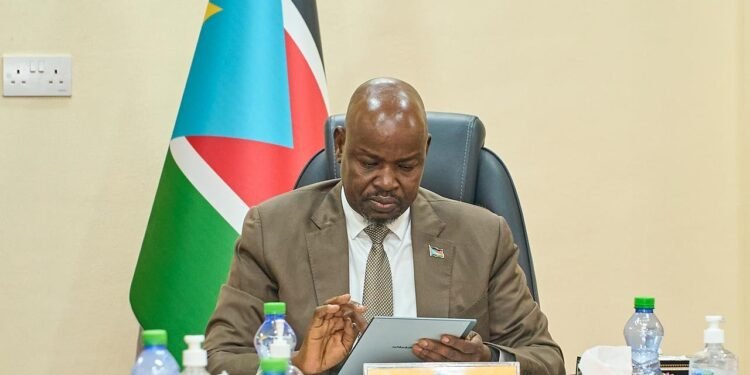South Sudanese Government through the economic cluster governance has passed Sixty-Two (62) billion South Sudanese pounds (SSP) to support Agricultural and farming activities ahead rainy season.
Through Vice President Bol Mel who chairs the Economic Cluster team, fast-tracked the country’s development priorities; agriculture and food security as the heart of the agenda.
Deputy Minister of Agriculture & Food Security and spokesperson, Ms. Lily Albino Akol announced that financing will be dedicated toward a 100-day farming activation exercise aimed at reviving farming systems and increasing production.
“Among the key resolutions was the approval of SSP. 62 billion to support farming activities ahead of the upcoming rainy season,” said Akol.
“This funding will be directed towards a 100-day farming activation exercise aimed at revitalizing farming systems, increasing domestic food production, and securing long-term agricultural sustainability,” she added.
To further advance the agriculture agenda, Ms. Akol affirmed that a special committee was formed to prepare for the National Agricultural Conference – a landmark event that will bring together stakeholders to unlock investment, generate innovative solutions, and drive transformation within the agricultural sector.
In addition, economic cluster directed all state governors and chief administrators to allocate 250,000 hectares of land each for agricultural use.
“This will expand cultivation, empower local communities, and maximize the country’s vast agricultural potential,” she empathized.
VP Mel concluded the meeting by urging members of the Economic Cluster to move swiftly from policy to action, emphasizing that only through timely and effective implementation can the government deliver real and lasting change for the people of South Sudan.
“The Government of His Excellency President Salva Kiir Mayardit will continue empowering farmers, providing critical resources, and creating a conducive environment for sustainable agricultural development,” said VP Mel.
He added that these actions are expected to spur economic growth, create employment opportunities, and ensure every South Sudanese has access to sufficient and easily accessible food.












